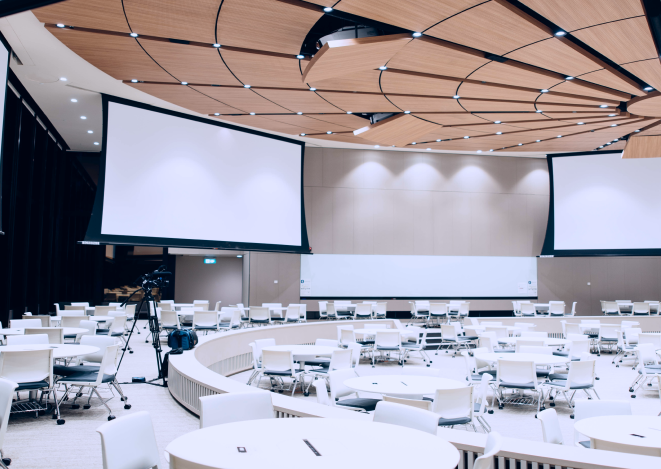SE meets AI or AI meets SE
05-Nov-2025 | Workshop ruimte 2nd Floor of the Bouwcampus
About the event
Systems Engineering (SE), understood as an interdisciplinary approach to enable the realisation of successful systems, is playing a crucial role in the ever-increasing demands on complex systems in all domains, whether these are engineering, scientific or societal systems. Systems Engineering is therefore taught, applied and developed at all faculties and in many different research fields and disciplines across TU Delft. The Systems Engineering Platform (SEP) brings together all eight faculties of TU Delft to help further developing education, research, innovation and impact of Systems Engineering at TU Delft.
AI, data and digitalisation are becoming increasingly important for solving major scientific and social issues. TU Delft is pursuing many strands of AI research, both ‘into AI’ and ‘with AI’. The role of AI technologies is also growing across our education and innovation activities. The TU Delft AI Initiative coordinates various activities and functions, providing a central platform for AI, data and digitalization-related research, for education and for innovation. It allows eight TU Delft faculties to collaborate intensively with multiple partners. The European Laboratory for Learning and Intelligent Systems (ELLIS) has a unit in Delft, which is closely related to the TU Delft AI initiative. The TUD ELLIS unit is a network of machine learning researcher in Delft.
Both SE and AI communities have 100+ scientific staff members at all faculties of TU Delft. There are important opportunities for both communities to benefit in their research from each other. These opportunities can be grouped into two areas:
1. AI for SE (support (increased efficiency), participatory (hybrid human-agent teams))
2. SE for AI (e.g. use cases, increased impact).
With this symposium we would like to bring both communities together so
both communities can to get to know each other
Identify and characterize research topics where cooperation between the SE and AI communities at TU Delft would benefit from, e.g. in terms of impact, capabilities, increased valorisation chances
Identify and specify concrete actions which can enable and facilitate this cooperation
Strengthen the research and innovation network of researchers from both communities.
Through an for both communities interesting programme with an enticing key note and interactive break-out sessions we hope to start fruitful conversations & collaborations.
Programme & Break - outs
Arie van Deursen is a professor in software engineering at the department of Software Technology in the faculty of Electrical Engineering, Mathematics, and Computer Science. In his keynote on 'large language models and agenetic AI for code' he will make some statements that are meant to spark the break outs.
There will be three break-out sessions - in the registration form you can indicate which one you would like to join:
Sociotechnical AI system safety & meaningful human control: With the rapid growth of AI applications across many industries and social domains, a variety of new risks and harms are emerging that threaten the safety of users, professionals and vulnerable communities. As a result, we need novel ways to understand how AI applications and their associated context-specific vulnerabilities can lead to hazardous and harmful outcomes, and, in response, ways to design for safety and other values in an integrative manner, at the level of software, hardware, user experience, management and policymaking. Designing for safety requires meaningful human control, as expectations and perceptions can be dynamic and shaped by individual or group experiences. In this workshop, we share experiences from ongoing collaborations across campus to work towards integrated systems approaches to AI system safety and meaningful human control and identify opportunities for broader efforts to inform safety and other core values for AI in our research and education.
Software/Digital Engineering and AI is promising to disrupt engineering practices, however, the synergies between AI in general and engineering practices, for example software, go beyond the current trend, for example in the field of formal methods and verification and approaches such as model-driven development or self-adaptive software system. In this break-out we will explore the opportunities that AI presents for the engineering processes of systems, and how systems engineering can enable the development of trustworthy AI systems.
Physical Agents/Robotics: Both systems engineering (SE) and machine learning (ML) hold a huge promise to make physical agents, such as robots, more flexible, adaptive, performant, capable, robust, reliable, etc. At the same time for both SE and ML the physical nature of agents poses challenging and interesting problems related e.g. to uncertainties and variability. In this break-out we’ll explore those challenges and try to determine if there are any solutions from the other domain, or if conversely, we can tackle them together.
Programme

Location
Workshop room @ Bouwcampus
Van der Burghweg 1, Building part A, 2nd floor
Delft
2628CS
SE meets AI or AI meets SE
 Registration website for SE meets AI or AI meets SE
Registration website for SE meets AI or AI meets SESE meets AI or AI meets SEsystemsengineering@tudelft.nl
SE meets AI or AI meets SEsystemsengineering@tudelft.nlhttps://www.aanmelder.nl/169695
2025-11-05
2025-11-05
OfflineEventAttendanceMode
EventScheduled
SE meets AI or AI meets SESE meets AI or AI meets SE0.00EUROnlineOnly2019-01-01T00:00:00Z
To be announcedTo be announced